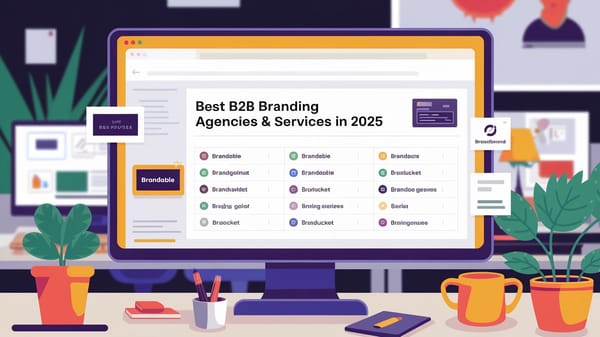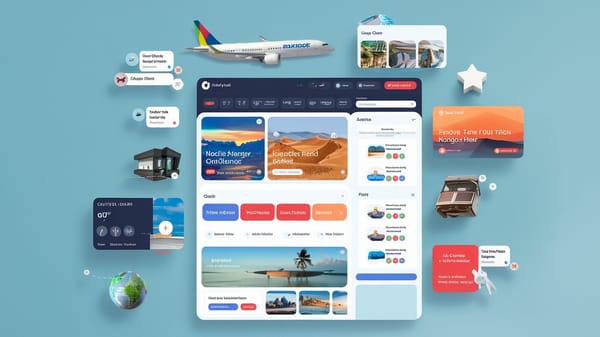Top 20 Project Management Myths Not to Fall for in 2024

As we navigate through 2024, project management becomes increasingly important to distinguish between fact and fiction in project management practices. Misconceptions can lead to inefficiencies, unmet deadlines, and scope creep, ultimately hindering project success. This report aims to debunk the top 20 project management myths that persist in the industry, providing clarity and insight for professionals seeking to enhance their project management skills.
Project management is a critical discipline that involves planning, executing, and monitoring projects to achieve specific goals within predefined constraints such as time, budget, and resources. Despite its importance, the field is often clouded by myths that can mislead even the most experienced project managers. For instance, the belief that project management tools alone ensure success is a common misconception that overlooks the necessity of sound management practices and effective team collaboration.
Another prevalent myth is that project management is only for large and complex projects. In reality, project management principles can be applied to projects of any size, helping to define objectives, allocate resources, and measure progress effectively. Moreover, the notion that AI will replace project managers is unfounded. While AI can assist with certain tasks, human project managers remain essential for decision-making, communication, and strategic planning.
As we delve into these myths, it is crucial to approach project management with an open mindset, ready to embrace innovation and adapt to new trends. By dispelling these myths, project managers can focus on practices that truly contribute to a project's success, ensuring that they are well-equipped to navigate the complexities of modern project management. This report will serve as a guide to understanding and overcoming the misconceptions that can impede project success, ultimately empowering project managers to achieve their goals with confidence and precision.
You can also visit Oncely.com to find more Top Trending AI Tools. Oncely partners with software developers and companies to present exclusive deals on their products. One unique aspect of Oncely is its “Lifetime Access” feature, where customers can purchase a product once and gain ongoing access to it without any recurring fees. Oncely also provides a 60-day money-back guarantee on most purchases, allowing customers to try out the products and services risk-free.
Oncely are hunting for the most fantastic AI & Software lifetime deals like the ones below or their alternatives:

Common Project Management Myths
Myth 1: Customers Are Always Right
In the realm of project management, the adage "the customer is always right" is often misinterpreted. While customer feedback is invaluable, it is not infallible. Customers may have strong opinions about desired features, but these preferences do not always align with business objectives or technical feasibility. For instance, customers might overlook features that provide significant business benefits or request features that are not viable (GoSkills). Project managers must balance customer desires with practical considerations, ensuring that the project delivers real value. This involves managing customer expectations, conducting thorough research, and providing constructive feedback throughout the project lifecycle (Teamly).
Myth 2: Constant Meetings Are Unproductive
A common misconception in project management is that frequent meetings are inherently unproductive. While excessive meetings can indeed be a drain on time and resources, well-structured meetings are crucial for effective communication and collaboration. Meetings provide a platform for team members to align on project goals, address issues, and make informed decisions. The key is to ensure that meetings are purposeful, time-bound, and focused on specific outcomes. By doing so, meetings can enhance productivity rather than hinder it (Teamly).
Myth 3: Change Is Always Bad
Change is often perceived as a negative force in project management, but this is not always the case. While change can introduce risks and uncertainties, it can also drive innovation and improvement. Effective change management involves anticipating potential changes, assessing their impact, and implementing strategies to mitigate risks. By embracing change, project managers can adapt to evolving circumstances and seize new opportunities. This proactive approach to change management is essential for staying competitive in a dynamic business environment (Teamly).
Myth 4: Project Management Is Just About Planning and Scheduling
The belief that project management is solely about planning and scheduling is a narrow view of the discipline. While these activities are fundamental, project management encompasses a wide range of responsibilities, including risk management, stakeholder communication, resource allocation, and quality assurance. Project managers must also possess leadership, negotiation, and problem-solving skills to navigate complex project environments. The role is dynamic and multifaceted, requiring a holistic approach to ensure project success (LinkedIn).
Myth 5: Project Management Tools Can Solve All Project Challenges
The proliferation of project management tools has led to the misconception that these tools can address all project challenges. While tools like Asana, Jira, and Trello offer valuable functionalities for task management and collaboration, they are not a panacea. Effective project management requires a combination of tools, processes, and human expertise. Tools must be properly implemented, customized, and supported by training to be truly effective. Moreover, project managers must leverage their skills and experience to address challenges that tools alone cannot solve (Management Atheneum).
Myth 6: Artificial Intelligence Will Replace Project Managers
The rise of artificial intelligence (AI) in project management has sparked fears that AI will replace human project managers. However, AI is more of an enabler than a replacement. AI can automate routine tasks, provide data-driven insights, and enhance decision-making processes. Nevertheless, human project managers remain essential for strategic planning, communication, and leadership. AI tools can augment the capabilities of project managers, allowing them to focus on higher-level tasks that require human judgment and creativity (Management Atheneum).
Myth 7: You Only Need One Project Management Method
The notion that a single project management method can be universally applied is a myth. Different projects have unique requirements, and no one-size-fits-all approach exists. Agile, Waterfall, and hybrid methodologies each have their strengths and are suited to different types of projects. Successful project managers must be adaptable, selecting and tailoring methodologies to fit the specific context and objectives of each project. This flexibility is crucial for managing diverse projects effectively (GoSkills).
Myth 8: Blockchain Technology Is Essential for All Projects
Blockchain technology is often touted as a revolutionary tool for project management, particularly for data security and transparency. However, its adoption is not yet widespread, and it may not be essential for all projects. While blockchain can offer benefits in certain contexts, such as supply chain management, it is not a universal requirement. Project managers should evaluate the specific needs and constraints of their projects before deciding to implement blockchain technology (Management Atheneum).
Myth 9: Project Management Is Non-Stop Paperwork
The perception that project management is dominated by paperwork is outdated. Advances in technology have transformed the field, reducing the reliance on manual documentation. Modern project management tools facilitate digital collaboration, automate reporting, and streamline communication. While documentation remains important, it is now more about capturing essential information efficiently rather than generating excessive paperwork. This shift allows project managers to focus on strategic activities that drive project success (GoSkills).
Myth 10: Anyone Can Be a Project Manager
The belief that anyone can be a project manager underestimates the complexity and demands of the role. Project management requires a unique blend of technical knowledge, interpersonal skills, and strategic thinking. Successful project managers must navigate diverse challenges, from managing stakeholder expectations to mitigating risks and ensuring project alignment with business goals. While training and experience can develop these skills, not everyone possesses the aptitude or inclination to excel in this demanding field (LinkedIn).
Impact of AI and Technology on Project Management
AI-Driven Project Management Tools
Artificial Intelligence (AI) is revolutionizing project management by automating routine tasks and enhancing decision-making processes. AI-driven tools are increasingly embedded in project management software, providing project managers with capabilities such as predictive analytics, risk assessment, and resource allocation. According to a survey by Capterra, 93% of project managers reported a positive return on investment (ROI) from AI project management tools (TechTarget). These tools help streamline workflows, reduce administrative burdens, and improve project outcomes by offering real-time data analysis and predictive insights.
Automation and Task Scheduling
AI's ability to automate task scheduling is transforming how projects are managed. By analyzing past project data, AI tools can suggest optimal schedules and identify common tasks, allowing project managers to focus on strategic decision-making rather than administrative details. This automation not only saves time but also enhances the accuracy of project timelines. For instance, AI can automate the creation of high-level schedules, which project teams can then refine and validate (Nimblework). This approach leverages AI's capacity to handle repetitive tasks, freeing up human resources for more complex problem-solving activities.
Enhanced Risk Management
AI's role in risk management is particularly noteworthy. AI-driven risk assessment tools analyze data trends and historical project outcomes to identify potential risks early in the project lifecycle. This proactive approach allows project teams to devise robust mitigation strategies, minimizing the likelihood of project derailment. AI's predictive capabilities enable project managers to anticipate challenges and opportunities, fostering a more strategic approach to project execution (LinkedIn). By providing insights into potential risk factors, AI enhances the confidence and control of stakeholders and team members alike.
Integration of Advanced Technologies
The integration of advanced technologies such as AI, machine learning (ML), and automation is a significant trend in project management. These technologies augment decision-making capabilities and optimize resource utilization, leading to more efficient project processes. The seamless integration of AI and ML is expected to elevate project efficiency and success rates (IIL Blog). As AI continues to evolve, decision support systems will become more advanced, offering project managers enhanced tools for making informed choices based on real-time data and historical project outcomes.
AI and Agile Methodologies
The convergence of AI and agile methodologies is reshaping project management practices. AI's predictive insights are particularly valuable in agile project management, where adaptability and responsiveness are crucial. By fine-tuning agile processes, AI ensures that each iterative cycle is more informed and effective than the last (LinkedIn). This synergy between AI and agile frameworks fosters more responsive, data-driven, and customer-centric project management approaches, enabling organizations to navigate the complexities of modern business environments more effectively.
Future Trends and Ethical Considerations
Looking ahead, the role of AI in project management is expected to expand further, with a growing emphasis on ethical considerations. As AI becomes more integrated into project management workflows, the importance of AI ethics will become paramount. Project managers will need to consider how AI decisions are made and their impact on society (LinkedIn). Additionally, the adoption of hybrid project management models, combining traditional and agile methodologies with AI technologies, is set to define the future of the field (Businessmap).
Conclusion
The impact of AI and technology on project management is profound, offering numerous benefits such as enhanced efficiency, improved risk management, and more informed decision-making. As AI continues to evolve, project managers must adapt to these changes, leveraging AI-driven tools to optimize project outcomes and navigate the complexities of modern business environments. The integration of AI and advanced technologies is not just a trend but a fundamental shift in how projects are managed, requiring project managers to continuously update their skills and embrace new methodologies to stay competitive in the evolving landscape of project management.
Hybrid and Flexible Project Management Approaches
Understanding Hybrid Project Management
Hybrid project management is an approach that combines elements from both traditional and agile methodologies, allowing for a more tailored and flexible project management strategy. This approach is particularly beneficial in today's dynamic project environments, where adaptability and responsiveness are crucial. Hybrid project management integrates the structured planning and control of the Waterfall method with the iterative and flexible nature of Agile, providing a balanced framework that can be customized to meet specific project needs (Conceptboard).
The hybrid model is gaining popularity as it allows project managers to leverage the strengths of both methodologies while mitigating their weaknesses. For instance, the Waterfall approach's emphasis on detailed planning and documentation ensures clarity and transparency, while Agile's iterative cycles allow for quick adjustments and continuous improvement (Edbrick).
Benefits of Hybrid Project Management
- Flexibility and Adaptability: Hybrid project management offers the flexibility to adapt to various project phases and requirements. By combining Agile's adaptability with Waterfall's structured approach, project managers can respond to changes without losing control over the project's progress. This adaptability is particularly beneficial in complex and fast-paced environments where project requirements may evolve rapidly (Float).
- Improved Risk Management: The hybrid approach allows for better risk management by incorporating continuous feedback and incremental changes. This proactive approach to risk management helps in identifying potential issues early in the project lifecycle, enabling teams to address them before they escalate into significant problems (Edbrick).
- Enhanced Stakeholder Engagement: By integrating Agile's focus on collaboration and communication with Waterfall's emphasis on documentation, hybrid project management fosters better stakeholder engagement. This approach ensures that stakeholders are kept informed and involved throughout the project, leading to higher satisfaction and better alignment with project goals (ProjectManager).
Challenges in Implementing Hybrid Project Management
Despite its benefits, implementing a hybrid project management approach can present several challenges. One of the primary challenges is resistance to change, as team members and stakeholders may be accustomed to traditional methods and may struggle to adapt to a new approach. To overcome this, organizations need to invest in training and change management initiatives to ensure a smooth transition (Edbrick).
Another challenge is maintaining clarity and consistency across the project. The hybrid approach requires careful planning and coordination to ensure that all team members understand their roles and responsibilities. This can be achieved by clearly defining project requirements, expectations, and deadlines, and by using tools like Gantt charts and work breakdown structures to organize tasks and deliverables (Edbrick).
Hybrid Project Management in Practice
In practice, hybrid project management involves tailoring the methodology to suit the specific needs of the project. This may involve using Agile techniques for certain phases of the project, such as development and testing, while employing Waterfall methods for planning and documentation. The key to successful hybrid project management is understanding the unique requirements of each project and selecting the appropriate tools and techniques to achieve the desired outcomes (Float).
For example, a software development project may begin with a detailed planning phase using Waterfall techniques to establish project scope and requirements. Once the project moves into the development phase, Agile methods such as sprints and iterations can be used to facilitate rapid prototyping and testing. This combination allows for greater flexibility and responsiveness while maintaining the necessary structure and control (ProjectManager).
Future Trends in Hybrid Project Management
As project management continues to evolve, hybrid approaches are expected to become even more prevalent. The increasing complexity of projects and the demand for faster delivery times are driving organizations to adopt more flexible and adaptive methodologies. In the future, hybrid project management is likely to incorporate more advanced technologies, such as artificial intelligence and automation, to further enhance efficiency and decision-making capabilities (ClickUp).
Moreover, the focus on employee wellness and team collaboration is expected to play a significant role in shaping hybrid project management practices. By prioritizing team well-being and fostering a collaborative work environment, organizations can improve productivity and achieve better project outcomes (Project Management Society).
In conclusion, hybrid project management offers a versatile and effective approach to managing complex projects in today's fast-paced and ever-changing environment. By combining the best elements of traditional and agile methodologies, organizations can achieve greater flexibility, improved risk management, and enhanced stakeholder engagement, ultimately leading to more successful project outcomes.
References
- https://medium.com/@nimzieg/debunking-the-myths-of-a-project-manager-ef72e4b80d43
- https://clickup.com/blog/project-management-trends-2024/
- https://thedigitalprojectmanager.com/projects/pm-methodology/hybrid-project-management-methodology/
- https://www.linkedin.com/pulse/project-management-myths-debunked-separating-fact-sabri-calisici-pmp-bokwf
- https://www.goskills.com/Project-Management/Resources/Project-management-myths
- https://www.theprojectgroup.com/blog/en/project-management-trends/
- https://managementatheneum.blog/2024/02/22/blog-no-40-project-management-2024-debunking-the-myths/
- https://conceptboard.com/blog/7-rules-successful-hybrid-project-management/
- https://www.linkedin.com/posts/rajurk2803_blog-no-40-project-management-2024-debunking-activity-7166455323107528704-IBNy
- https://www.linkedin.com/pulse/debunking-10-project-management-myths-pranab-prakash
- https://www.float.com/resources/hybrid-project-management
- https://projectmanagementsociety.com/2024-project-management-trends/
- https://www.projectmanager.com/guides/agile-vs-waterfall-hybrid-projects
- https://edbrick.com/blog/hybrid-project-management-benefits-and-examples/
- https://softwarefinder.com/resources/top-20-project-management-myths-not-to-fall-for





